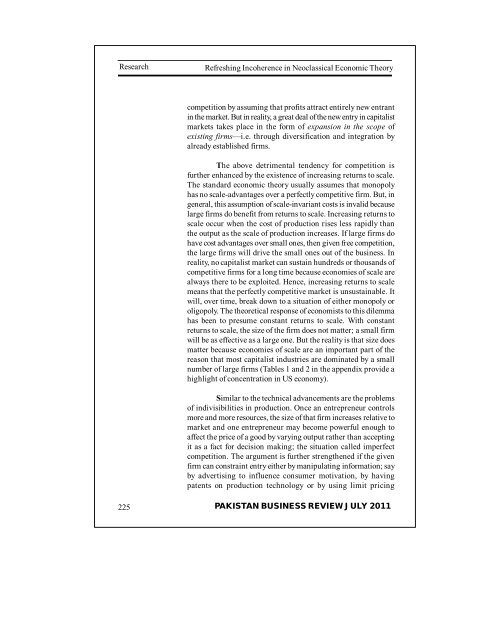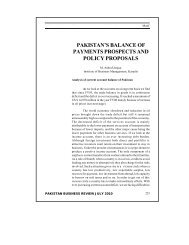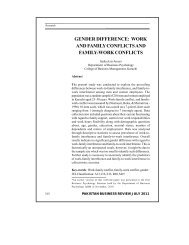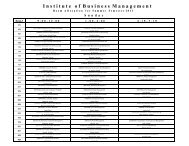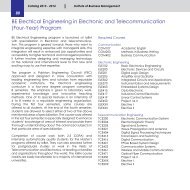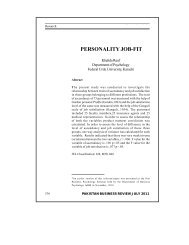PAKISTAN BUSINESS REVIEW - Institute of Business Management
PAKISTAN BUSINESS REVIEW - Institute of Business Management
PAKISTAN BUSINESS REVIEW - Institute of Business Management
You also want an ePaper? Increase the reach of your titles
YUMPU automatically turns print PDFs into web optimized ePapers that Google loves.
Research<br />
Refreshing Incoherence in Neoclassical Economic Theory<br />
competition by assuming that pr<strong>of</strong>its attract entirely new entrant<br />
in the market. But in reality, a great deal <strong>of</strong> the new entry in capitalist<br />
markets takes place in the form <strong>of</strong> expansion in the scope <strong>of</strong><br />
existing firms—i.e. through diversification and integration by<br />
already established firms.<br />
The above detrimental tendency for competition is<br />
further enhanced by the existence <strong>of</strong> increasing returns to scale.<br />
The standard economic theory usually assumes that monopoly<br />
has no scale-advantages over a perfectly competitive firm. But, in<br />
general, this assumption <strong>of</strong> scale-invariant costs is invalid because<br />
large firms do benefit from returns to scale. Increasing returns to<br />
scale occur when the cost <strong>of</strong> production rises less rapidly than<br />
the output as the scale <strong>of</strong> production increases. If large firms do<br />
have cost advantages over small ones, then given free competition,<br />
the large firms will drive the small ones out <strong>of</strong> the business. In<br />
reality, no capitalist market can sustain hundreds or thousands <strong>of</strong><br />
competitive firms for a long time because economies <strong>of</strong> scale are<br />
always there to be exploited. Hence, increasing returns to scale<br />
means that the perfectly competitive market is unsustainable. It<br />
will, over time, break down to a situation <strong>of</strong> either monopoly or<br />
oligopoly. The theoretical response <strong>of</strong> economists to this dilemma<br />
has been to presume constant returns to scale. With constant<br />
returns to scale, the size <strong>of</strong> the firm does not matter; a small firm<br />
will be as effective as a large one. But the reality is that size does<br />
matter because economies <strong>of</strong> scale are an important part <strong>of</strong> the<br />
reason that most capitalist industries are dominated by a small<br />
number <strong>of</strong> large firms (Tables 1 and 2 in the appendix provide a<br />
highlight <strong>of</strong> concentration in US economy).<br />
Similar to the technical advancements are the problems<br />
<strong>of</strong> indivisibilities in production. Once an entrepreneur controls<br />
more and more resources, the size <strong>of</strong> that firm increases relative to<br />
market and one entrepreneur may become powerful enough to<br />
affect the price <strong>of</strong> a good by varying output rather than accepting<br />
it as a fact for decision making; the situation called imperfect<br />
competition. The argument is further strengthened if the given<br />
firm can constraint entry either by manipulating information; say<br />
by advertising to influence consumer motivation, by having<br />
patents on production technology or by using limit pricing<br />
225<br />
<strong>PAKISTAN</strong> <strong>BUSINESS</strong> <strong>REVIEW</strong> JULY 2011


